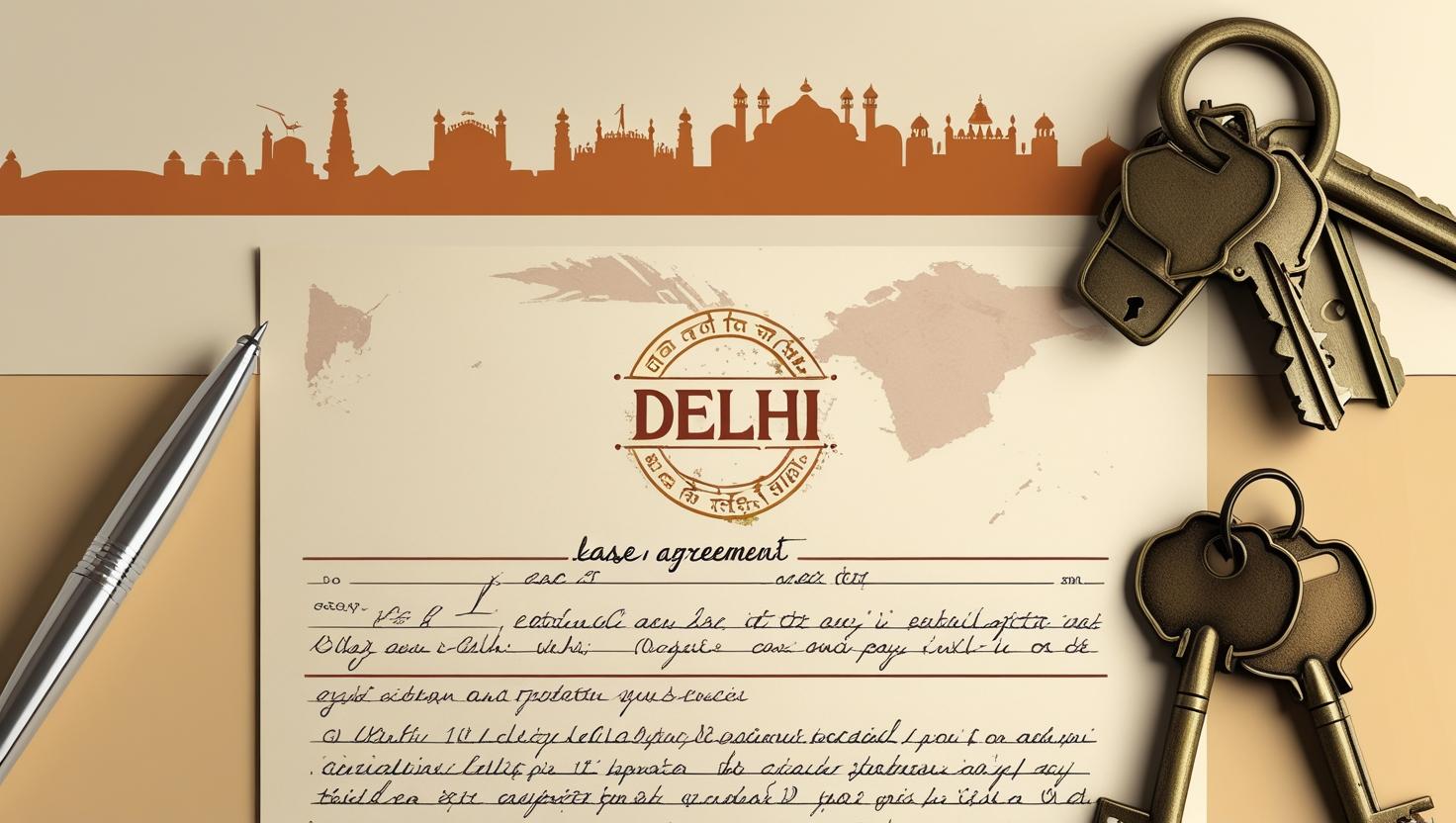Navigating the complexities of lease agreements in Delhi requires a thorough understanding of legal frameworks, rights, and obligations. This guide delves into the intricacies of lease agreements, offering insights into key components, common challenges, and best practices to ensure a smooth leasing experience in the capital city.
1. Introduction to Lease Agreements
A lease agreement is a legally binding contract between a landlord and tenant, outlining the terms and conditions for renting property. In Delhi, these agreements are governed by the Delhi Rent Control Act, 1958, which aims to regulate fair rent practices and protect both parties from exploitation.
2. Key Components of a Lease Agreement
A comprehensive lease agreement should encompass the following elements:
- Parties Involved: Clearly state the names and addresses of both the landlord and tenant.
- Property Details: Provide a detailed description of the leased premises, including its address and any specific features.
- Lease Term: Specify the duration of the lease, whether it’s an 11-month agreement or a long-term lease. In Delhi, 11-month agreements are common, often with provisions for renewal.
Source : legaldesk.com - Rent Amount and Payment Terms: Clearly outline the monthly rent, due dates, accepted payment methods, and any penalties for late payment.
- Security Deposit: Detail the amount of the security deposit, conditions for deductions, and the process for its return upon lease termination.
- Maintenance Responsibilities: Define the obligations of both parties regarding property upkeep and repairs.
- Termination Clause: Specify conditions under which the lease can be terminated by either party, along with the required notice period.
3. Legal Framework Governing Lease Agreements in Delhi
Understanding the legal landscape is crucial for both landlords and tenants:
- Delhi Rent Control Act, 1958: This Act regulates rent, prevents arbitrary eviction, and ensures fair practices in the rental market. It applies to most rented premises in Delhi, with certain exceptions such as properties rented to public sector enterprises or foreign companies.
Source : blog.drlegit.in - Rent Control Act: This Act aims to regulate rent increases and safeguard the rights of both tenants and landlords. It ensures that rent charged is fair and competitive, aligning with market rates.
Source : Mygate
4. Common Challenges in Lease Agreements
Both landlords and tenants may encounter challenges during the lease period:
- Non-Payment of Rent: Delays or defaults in rent payment can strain the landlord-tenant relationship. Including clear terms about late fees and legal actions in the lease agreement can mitigate this problem.
Source : www.bajajfinserv.in - Property Damage: Disputes often arise over damages caused by tenants. The lease agreement should specify the condition of the property at the start and end of the lease and outline the tenant’s responsibility for any damages.
Source : www.bajajfinserv.in - Unauthorized Subletting: Some tenants may sublet the property without the landlord’s permission. The agreement should explicitly state the rules regarding subletting to avoid such issues.
Source : www.bajajfinserv.in - Maintenance Responsibilities: Ambiguities regarding who is responsible for repairs can lead to conflicts. Clearly defining maintenance obligations in the lease agreement is essential.
Source : Īksha Legal –
5. Rights and Responsibilities of Tenants
Tenants in Delhi are entitled to certain rights and are also bound by specific responsibilities:
- Right to Fair Rent: Tenants have the right to be charged a reasonable rent amount, in line with existing market rates for similar properties.
Source : Vakil Search - Right to Privacy: Landlords cannot interfere with the tenant’s peaceful enjoyment of the property without prior notice or valid reasons.
- Responsibility to Maintain Property: Tenants must keep the property in good condition and promptly report any damages or necessary repairs to the landlord.
6. Rights and Responsibilities of Landlords
Landlords also have defined rights and obligations:
- Right to Evict: Landlords can evict tenants on valid and reasonable grounds, such as non-payment of rent or personal use of the property. However, the eviction process must comply with legal requirements.
Source : Vakil Search - Right to Charge Fair Rent: Landlords are entitled to charge a reasonable rent, reflecting the property’s market value. Unjustified rent hikes are regulated to protect tenants.
Source : Mygate - Responsibility to Maintain Property: Landlords must ensure the property is habitable and address necessary repairs promptly.
7. Recent Developments Impacting Lease Agreements
Staying informed about recent legislative changes is crucial:
- Renters’ Rights Bill 2025: This new legislation introduces assured periodic tenancies, replacing fixed-term agreements. Tenancies will run from month to month until either the tenant serves notice or the landlord meets specific grounds for regaining possession, such as selling the property or moving in.
Source : Savills - Shop Rent Agreement Rules 2025: For commercial leases, new rules stipulate that agreements must include the names and addresses of both parties and a clear description of the property being leased.
Source : Housewise
8. Best Practices for Drafting Lease Agreements
To minimize disputes and ensure clarity:
- Detail All Terms: Clearly outline all terms and conditions, leaving no room for ambiguity.
- Include Renewal and Termination Clauses: Specify the process for renewing or terminating the lease, including notice periods and any associated conditions.
- Address Maintenance and Repairs: Clearly define who is responsible for various types of maintenance and repairs to prevent future disagreements.
- Consult Legal Professionals: Engage legal experts to draft or review lease agreements, ensuring compliance with current laws and regulations.
Conclusion
Understanding lease agreements in Delhi involves comprehending legal frameworks, recognizing common challenges, and adhering to best practices. Both landlords and tenants should approach lease agreements with due diligence, ensuring that all terms are clearly defined and legally compliant. By doing so, they can foster a harmonious rental relationship and mitigate potential disputes.
Disclaimer: This article is for informational purposes only and does not constitute legal advice. For specific legal concerns, consult a qualified legal professional.

